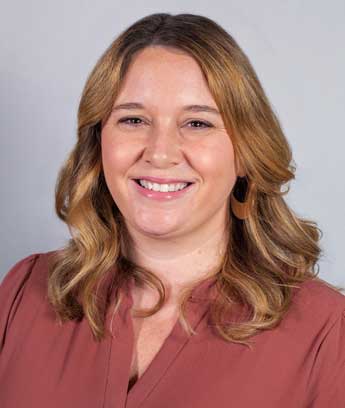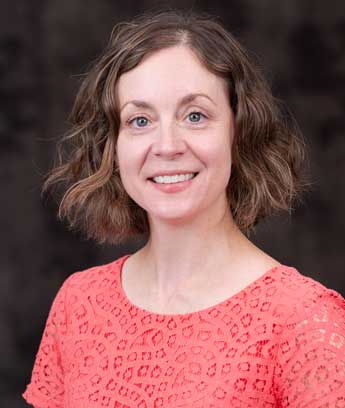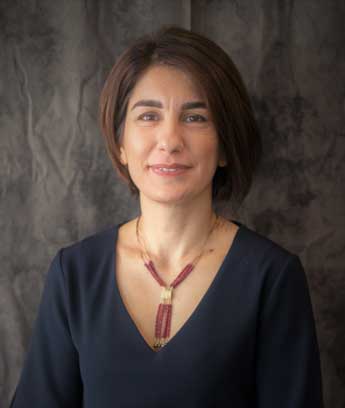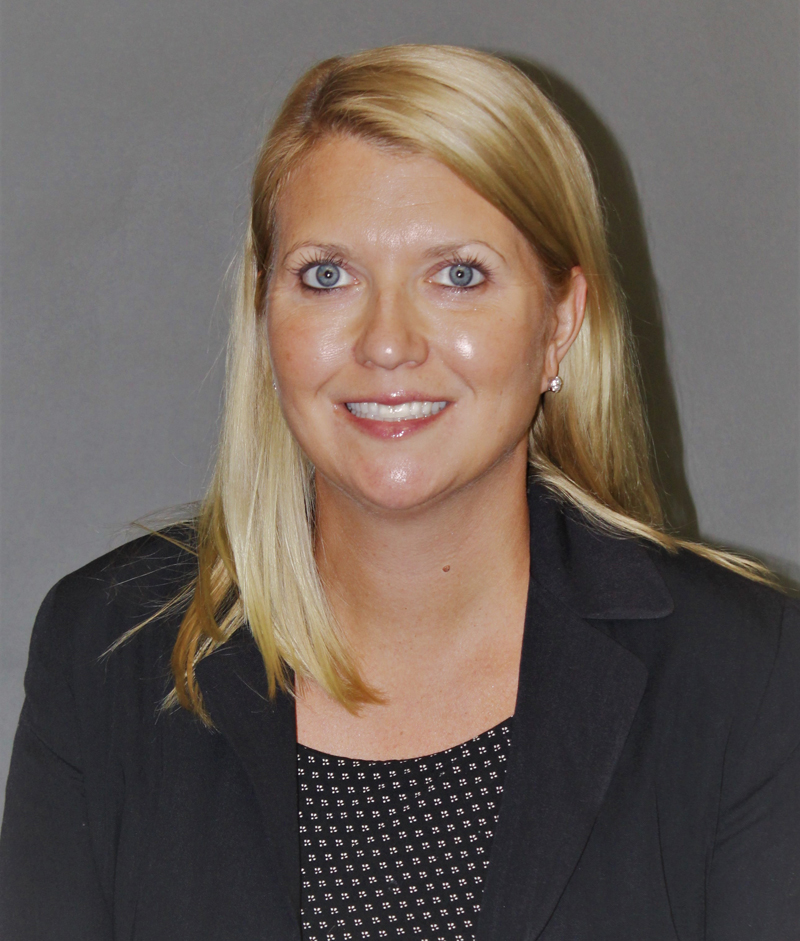Center for Neuropsychological and Psychological Assessment (CNaP): Core Training Supervisors

Richard Boada, PhD, ABPP
Neuropsychologist, CNaP
Associate Professor of Psychiatry and Behavioral Sciences
BoadaR@KennedyKrieger.org
Dr. Boada provides clinical neuropsychological services for patients, and training and supervision for postdoctoral residents, through the outpatient Epilepsy and Acquired Brain Injury Clinic. He has specific experience and expertise in working with patients who have had epilepsy surgery, patients who have had childhood stroke, patients with sex chromosome aneuploidy (SCA) and patients who are bilingual (Spanish-English). Dr. Boada’s research focuses on the cognitive and genetic underpinnings and comorbidity among speech, language and reading disorders, as well as neuropsychological outcomes in children with epilepsy, stroke and SCA’s. He serves on the editorial board of Child Neuropsychology and has been a principal investigator (PI), co-PI or co-investigator on various National Institutes of Health (NIH)-funded grants over the past 20 years. Recent papers include a review of childhood stroke outcomes and a paper on culturally-informed neuropsychological evaluations in pediatric epilepsy.

Carolyn Caldwell, PhD
Neuropsychologist, CNaP
CaldwellC@KennedyKrieger.org
Dr. Caldwell is the primary supervisor for postdoctoral residents in the interdisciplinary Concussion Clinic, part of the Rehabilitation Continuum of Care at Kennedy Krieger. Dr. Caldwell is also a primary supervisor for the Congenital/Genetic Conditions Outpatient Major Rotation. She provides clinical neuropsychological services through CNaP's outpatient specialty clinics, including the Congenital/Genetic Conditions Clinic. Dr. Caldwell also provides outpatient neuropsychological evaluations through the multidisciplinary Infant Neurodevelopment Center. In addition, Dr. Caldwell is a member of the interdisciplinary Craniofacial Clinic team at The Johns Hopkins Hospital (JHH). Her primary research interests include neuropsychological outcomes following pediatric brain injuries across the range of injury severity, performance validity measures, reliable change methodology, and evaluating the impact of sleep following pediatric brain injury.

Emma Cole, PhD, ABPP-SP, NCSP
Neuropsychologist, CNaP and Kennedy Krieger School Programs
Assistant Professor of Psychiatry and Behavioral Sciences
ColeEM@KennedyKrieger.org
Dr. Cole supervises the training of neuropsychology postdoctoral residents within the Kennedy Krieger School Programs. She is a credentialed school psychologist and has worked as a school psychologist in multiple public school districts, and as a pediatric neuropsychologist in an outpatient hospital setting. She primarily oversees the neuropsychology services at Kennedy Krieger's four schools, which serve children from ages 5 to 21 years old. In her role, Dr. Cole provides special education team-initiated assessments to students with a wide array of emotional, behavioral, neurodevelopmental, medical and genetic conditions. She also completes outpatient evaluations through CNaP . She has expertise in special education law, the assessment of children for educational services, the assessment of lower-functioning and/or behaviorally disruptive children, and the transition of students with disabilities to post-secondary settings. Her research interests include factors affecting post-secondary outcomes for students with disabilities and the development of advocacy skills in students with disabilities.

Lisa Jacobson, PhD, ABPP
Director, Kennedy Krieger Institute Informatics & Research Data Governance, CNaP
Director of Research, CNaP
Associate Professor of Psychiatry and Behavioral Sciences
Jacobson@KennedyKrieger.org
Dr. Jacobson coordinates the Oncology Clinic within the department’s outpatient specialty service and supervises postdoctoral residents within this clinic. Dr. Jacobson’s research interests include characterizing how the developing executive functions of children interact with their developmental contexts at home and school to influence brain development and neurobehavioral functioning.
Her research interests include disorders affecting executive function (e.g., attention-deficit/hyperactivity disorder [ADHD], spina bifida, cancers and cancer treatment) and children at risk for developing executive dysfunction. She is developing clinical screening tools for identifying children with neurocognitive difficulties, which can be used as part of typical medical care visits for specific clinical populations. She also has a funded project partnering with cancer survivors, their families and related service providers to examine factors influencing the transition back to full-time schooling after treatment. She has collaborated on Institute projects examining response variability in children with ADHD, characteristics of attentional disorders in referred children, influences of working memory and response variability on reading fluency in ADHD, executive function in patients with spina bifida, and validation of the Kennedy Krieger Independence Scales’ Spina Bifida (KKIS-SB) and Sickle Cell Disease (KKIS-SCD) versions.

Kelly E. Jones, PhD, ABPP
Neuropsychologist, CNaP
JonesKel@KennedyKrieger.org
Dr. Jones provides training and supervision to doctoral interns and postdoctoral residents. She also provides clinical neuropsychological services to children throughout Kennedy Krieger's Rehabilitation Continuum of Care, including the Pediatric Rehabilitation Unit, the interdisciplinary Brain Injury Clinic and CNaP's outpatient Epilepsy and Acquired Brain Injury Clinic. She specializes in children and adolescents with acquired brain injury, with specific clinical and research interests in pediatric neuroimmunological disorders.

Megan Kramer, PhD, ABPP
Training Director, Postdoctoral Fellowship in Pediatric Neuropsychology
Associate Training Director, Doctoral Internship Training Program in Behavioral Psychology and Neuropsychology
Assistant Professor of Psychiatry and Behavioral Sciences
KramerM@KennedyKrieger.org
Dr. Kramer serves as training director for postdoctoral residents in pediatric neuropsychology. She also serves as associate director of training for Kennedy Krieger’s Doctoral Internship Training Program in Behavioral Psychology and Neuropsychology. Dr. Kramer provides training and supervision to doctoral interns and postdoctoral residents on the Pediatric Rehabilitation Unit, and mentorship to psychologists at the Institute who are pursuing board certification. She also provides clinical neuropsychological services to children throughout Kennedy Krieger’s Rehabilitation Continuum of Care. She primarily works in the inpatient neurorehabilitation unit. She has a clinical interest in evidence-based cognitive rehabilitation interventions. Her research interests involve measuring and predicting outcomes across the range and severity of pediatric acquired brain injury.

Danielle Ploetz, PhD, ABPP
Neuropsychologist, CNaP and Fairmount Rehabilitation Programs
Ploetz@KennedyKrieger.org
Dr. Ploetz provides training and supervision for postdoctoral residents. She is also a board-certified clinical neuropsychologist, with a subspecialty certification in pediatric neuropsychology. She provides neuropsychological evaluations and interventions for children and adolescents recovering from a wide range of acquired brain injuries, including traumatic brain injury, stroke, encephalopathies, and brain tumors. She also works with patients who have other congenital, acquired, and neurodevelopmental disorders, including cerebral palsy, seizure disorders, spina bifida, spinal cord injuries, and chronic health conditions (e.g., pain, long COVID-19 and POTS). Research interests include performance and symptom validity testing in pediatric populations, program evaluation, and evaluating neuropsychological outcomes following pediatric brain injury.

Shruti Rane, PhD, ABPP
Neuropsychologist, CNaP
Rane@KennedyKrieger.org
Dr. Rane provides training and supervision to postdoctoral fellows. She provides clinical neuropsychological services to pediatric cancer survivors. Dr. Rane’s additional areas of expertise include assessment of children and adolescents diagnosed with epilepsy as well as neurodevelopmental disorders. She sees patients in CNaP’s outpatient clinics. Dr. Rane has worked overseas as a neuropsychologist and is interested in cross-cultural neuropsychology.

Elgiz Sener, PhD, ABPP
Neuropsychologist, Center for Autism Services, Science and Innovation (CASSI™)
Assistant Clinical Director, CASSI™
Sener@KennedyKrieger.org
Dr. Sener provides supervision for postdoctoral residents during their rotation through CASSI™. She also provides neuropsychological assessments for children, adolescents and young adults with ASD and a variety of comorbid developmental, psychiatric, genetic and medical conditions. She specializes in working with individuals with a range of abilities, as well as adolescents who will soon be transitioning to young adulthood. She provides comprehensive evaluations, both individually and as part of interdisciplinary teams. Her primary clinical interests include diagnostic differentiation of ASD from ADHD and intellectual disability, as well as assisting autistic youth (and their families) during their transition to adulthood.

Ericka Wodka, PhD, ABPP
Clinical Director, CASSI™
Associate Professor of Psychiatry and Behavioral Sciences
Wodka@KennedyKrieger.org
Dr. Wodka is a board-certified neuropsychologist, with subspecialty certification in pediatric neuropsychology. She is the primary supervisor for the postdoctoral residency in neuropsychology at CASSI. Professional affiliations include serving on the editorial board for Pediatric Psychology and Archives of Clinical Neuropsychology, and she is an associate editor for Neuropsychology Review. Her research interests include examining motor development, attention and other aspects of higher-order cognitive processes in neurodevelopmental disorders, particularly autism (ASD). She is the site principal investigator for a national study examining the genetic causes of ASD and a collaborator on an externally funded project examining motor functioning and imitation in ASD.

T. Andrew Zabel, PhD, ABPP
Assistant Vice President of Clinical Research and Quality Improvement
Associate Professor of Psychiatry and Behavioral Sciences
ZabelA@KennedyKrieger.org
Dr. Zabel is a board-certified clinical neuropsychologist who supervises trainees at the postdoctoral level. Professional affiliations include serving on the editorial boards of Assessment and The Clinical Neuropsychologist, as well as the advisory boards for the Spina Bifida Association and the Hydrocephalus Association. Dr. Zabel’s clinical specialization includes the adaptive and neuropsychological functioning of individuals with congenital and acquired disorders of the brain’s white matter. Specific areas of expertise include hydrocephalus, spina bifida, Sturge-Weber syndrome and cerebral palsy. In his role as the assistant vice president of clinical research and quality improvement, Dr. Zabel provides technical assistance to multiple disciplines and programs across Kennedy Krieger to help them capture clinical data and use it for ongoing quality improvement.
Faculty Research Supervisors
In addition to the core training supervisors listed, several faculty members in the department—including Beth Slomine, PhD, ABPP; Cynthia Salorio, PhD, ABPP; Natasha Ludwig, PhD; Rowena Ng, PhD; Rachel Peterson, PhD, ABPP; and Adrian Svingos, PhD—also provide research mentorship to fellows.
